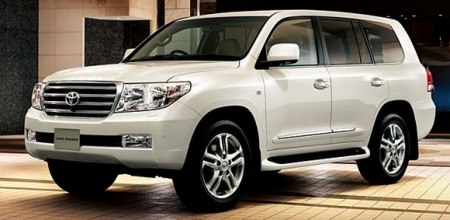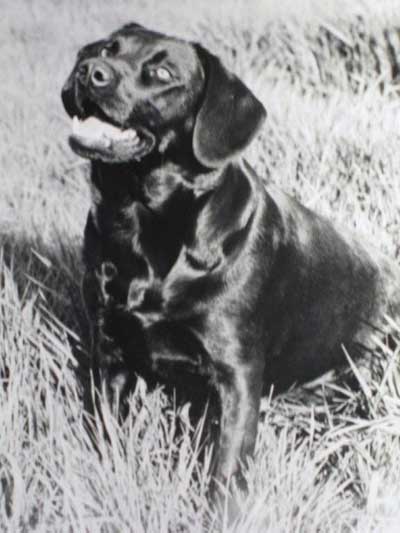The greenest pets
By Ruth D’Alessandro, The Wildlife Gardener The Wildlife Gardener read an interesting article in New Scientist recently. It makes the astonishing observation that, in terms of carbon footprint, you are better off running a 4.6-litre Toyota Land Cruiser than keeping a medium-sized dog.

It takes 43.3 square metres of land to generate 1 kg of chicken per year – far more for beef and lamb – and 13.4 square metres to generate 1 kg of cereals. So that gives him a footprint of 0.84 hectares. For a big dog such as a German shepherd, the figure is 1.1 hectares.
Meanwhile… a 4.6-litre Toyota Land Cruiser … driven a modest 10,000 kilometres a year, uses 55.1 gigajoules, which includes the energy required both to fuel and to build it. One hectare of land can produce approximately 135 gigajoules of energy per year, so the Land Cruiser’s eco-footprint is about 0.41 hectares – less than half that of a medium-sized dog. Cats have an eco-footprint of about 0.15 hectares (slightly less than a Volkswagen Golf) The crux of the issue is the carbon footprint of the meat and cereal in pet food. There is also the environmental impact of pets. I’ve never been a fan of cats:
Every year, the UK’s 7.7 million cats kill over 188 million wild animals. That’s 25 per cat. (Mammal Review, vol 33, p 174)
Cats kill (and do not necessarily eat) wildlife that other predators such as raptors and mustelids (stoats, weasels) rely upon for survival. And dogs aren’t as innocent as they seem: an Australian study showed that’bird life in areas frequented by dogs, even when kept on a lead, had 35 per cent less diversity and 41 per cent fewer birds overall’ (Biology Letters, vol 3, p 611). This article summed up perfectly la famille Wildlife Gardener’s dilemma about what pets to keep. Before we moved to a more rural area I dreamed of striding across dew-kissed fields in a Barbour and green wellies, two faithful, obedient and gun-trained labradors at my heel. My last experience of dog ownership was in the 1970s, when dogs could run for miles across fields, and crumbly white dog turds were to be found by every lamp post. If Brandy chose to defecate in the middle of Wokingham High Street, well, it was your own silly fault if you stepped in it.

2009, and things have changed. The reality, after a weekend looking after a friend’s two labradors, is that they are expensive, energy-sapping poo machines, muddy and endlessly standing in front of the telly. The joy of a relaxing country walk is marred by forever calling them away from other dogs, people and cars, and trying to drag them back through holes in hedges. And WHY do they roll in fox excrement? I returned from each walk a stressed, tooth-grinding husk. I had also not realised that dogs defecate large volumes up to FIVE TIMES a day. And being a responsible person, daily I bagged up 8-10 steaming, stinking piles of the stuff into little pink apricot-scented sacks and put them in bins for landfill. This seems wrong. A dog poo left in a field will have disintegrated into the soil in a week or so, but the apricot-scented specimen will be around in landfill for as long as it takes for the bag to rot – years. But you can’t just leave dog do in the streets, or fields where it can pollute watercourses and where livestock can ingest the stuff. As a dairy farmer once said:’Would you really like to pour that, eventually, on your breakfast cereal?’ For us, the solution is simply not to have a dog. Much as I like them, (and dogs bring happiness to many people) I no longer want to possess one. Not even a vegetarian one. Anyone who has shared a living room with a labrador that has eaten Brussels sprouts will surely sympathise. And that is why we have our hens:

And if you are thinking of acquiring a pet? …if you must own your own, think about getting an animal that serves a dual purpose. … hens, which partly compensate for their eco-footprint by providing eggs. I would go further than just’partly compensate’; I consider the manure that the von Quarks produce to be pivotal to the compost that produces zero-food-miles vegetables. Chicken manure is an excellent, rich compost accelerator, and I use it in my leaf mould bins to rot leaves a bit faster, as well as the other compost bins. I shred up bank statements and instead of putting the shreddings into the Council blue bag, I use them as henhouse bedding, and afterwards, into the household wet compost bin where they balance the slimy peelings. On the rare occasions that we have leftover cooked food (that shouldn’t go on a compost heap) the hens enjoy this. But never meat. Never feed hens any meat products; they should be vegetarians. However, try telling them that as they pull up an enormous earthworm or go into a feeding frenzy over a dead frog. Hens are naturally carnivorous by their jungle fowl origins. But you can cuddle a dog. It will follow you round the garden. Believe me, you can cuddle a hen. They enjoy snuggling onto a lap and have been known to fall asleep in my arms. And if you’re out raking leaves you have constant, gently clucking companionship. They are, in short, the perfect pets. And dare I even say mine are carbon neutral? Now, where are my car keys….?
- Spurn Spawn! - 26th February, 2014
- Bluebells on wheels: axles of evil? - 2nd February, 2011
- Raising the ba: Wildlife and the Ancient Egyptian Book of the Dead - 8th January, 2011


Ha! The New Scientist article itself in full is even crazier! Good points, Bill, examining the other eco-habits that the dog owner vs. the Land Cruiser driver may have. For some greenies, a large car may be the only eco-guilty pleasure they have (but then I’ve never been in a cold house with a Range Rover on the drive), and owning dogs may be perceived by some as another status/consumerist symbol.
Enjoy your bloodhounds! They are magnificent.I just can’t be bothered to deal with all that poo.
Pretty crazy. Dogs and other animals are living, breathing animals that think, breath, and are part of the natural world. One can measure the carbon footprint of nearly everything, that doesn’t make it relevant.
Someone else can take a landcruiser, I’ll take my bloodhounds. When it comes to being “green” I’ll bet on my and my habits rather than the land cruiser lover.
bill;www.wildramblings.com